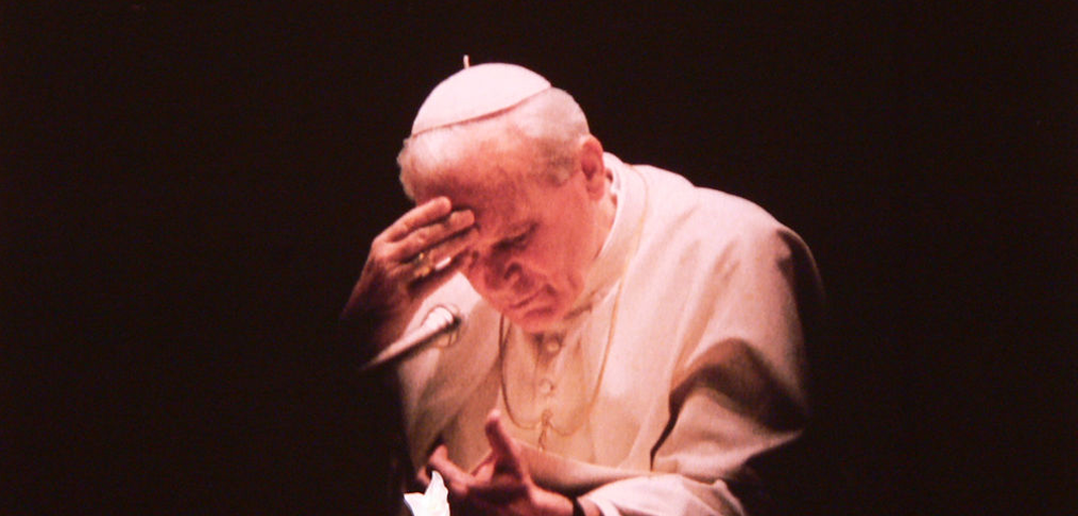
A new book is being released by Pope Emeritus Benedict XVI, in which he offers reflections on the priesthood to mark the 65th anniversary of his ordination. The preface of the book is written by Pope Francis, who says that
“every time I have read the works of Joseph Ratzinger/Benedict XVI, it becomes increasingly clear that he has done and is doing ‘theology on his knees’.
“On his knees because, even before being a great theologian and teacher of the faith, we see a man who truly believes, who truly prays, you see he is a man who embodies holiness, a man of peace, a man of God.”
But there is more in the preface of Pope Francis. The Italian daily, La Repubblica, reports that Francis says of his immediate predecessor:
renouncing the active exercise of the Petrine ministry, Benedict XVI has now decided to devote himself totally to the “service of prayer: The Lord calls me to ‘climb the mountain’, to dedicate myself even more to prayer and meditation…”
We have heard something similar recently from Archbishop Georg Gänswein, personal secretary to Pope Benedict and Prefect of the Papal Household of Pope Francis, about an “expanded Petrine ministry” with an “active and a contemplative member.” Said Gänswein in a recent speech:
From the election of his successor, Pope Francis—on 13 March 2013—there are not then two Popes, but de facto an enlarged ministry with an active and a contemplative member. For this reason, Benedict has not renounced either his name or his white cassock. For this reason, the correct title with which we must refer to him is still “Holiness.” Furthermore, he has not retired to an isolated monastery, but [has retired] within the Vatican, as if he had simply stepped aside to make space for his Successor, and for a new stage in the history of the Papacy, which he, with that step, has enriched with the centrality of [prayer] and of compassion placed in the Vatican Gardens.
This, of course, makes absolutely no sense.
The Petrine ministry is not something to be divided amongst various “members”. It is a binary position. Yes or no, on or off, one or zero. There is only one pope at any given moment in time. (We have also seen the kind of conclusions this sort of thing can lead to.)
It is worth taking note, therefore, of something that Catholic journalist Giuseppe Nardi has just brought back to light in the German publication, Katholisches.info.
In 2001, an orthopedic surgeon confirmed that the Pope was suffering from Parkinson’s disease, an incurable and debilitating neuro-degenerative disorder which would eventually make any meaningful exercise of the Petrine Office impossible. Though that information would not be released to the public until 2003, it was obvious to all that his health was rapidly declining, and many were wondering whether the Pope’s condition called for a reconsideration of the matter of papal retirement.
This condition would in fact become such an impediment that the last public appearance, in 2005, of a pope known for his remarkable skill in communication would be remembered principally for his inability to express himself at all due to his physical ailments and limitations.
Nardi reports that just a few years earlier, in July of 2002, the question of a possible retirement was was put to the Pope himself, and his response was clear and emphatic:
“A Pope Emeritus is impossible.”
This exchange is reported to have taken place at the Toronto residence of Cardinal Gerald Emmett Carter between the Pope and former media magnate Lord Conrad Black. Black first reported the conversation in a 2005 issue of the Catholic Herald.
So what are we to believe? Which pope is correct? The pope who died in office, encumbered by a debilitating illness and allegedly administratively usurped by certain of his advisers who took advantage of his incapacity? The pope who abdicated, saying that his “strengths, due to an advanced age, are no longer suited to an adequate exercise of the Petrine ministry”, despite the fact that he has continued for three years in more robust health than John Paul II enjoyed at the end? Does Ratzinger even wish to be seen as a “Pope Emeritus”, when he said clearly to German journalist Jorg Bremer that he wanted to be called “Father Benedict” rather than retaining a papal title, or even that of “Emeritus,” but “was too weak at that point to enforce it”?
At least part of the reason for wanting his new title to simply be “Father” rather than Pope Emeritus or Benedict XVI is to put more space between him and the role of the pope, so that there is no confusion as to who the “true Pope” is, Bremer reported.
The retired pontiff encouraged the journalist to write about his desire, saying “Yes, do that; that would help.”
These days, it seems that we are always uncovering new questions, but very few answers.


